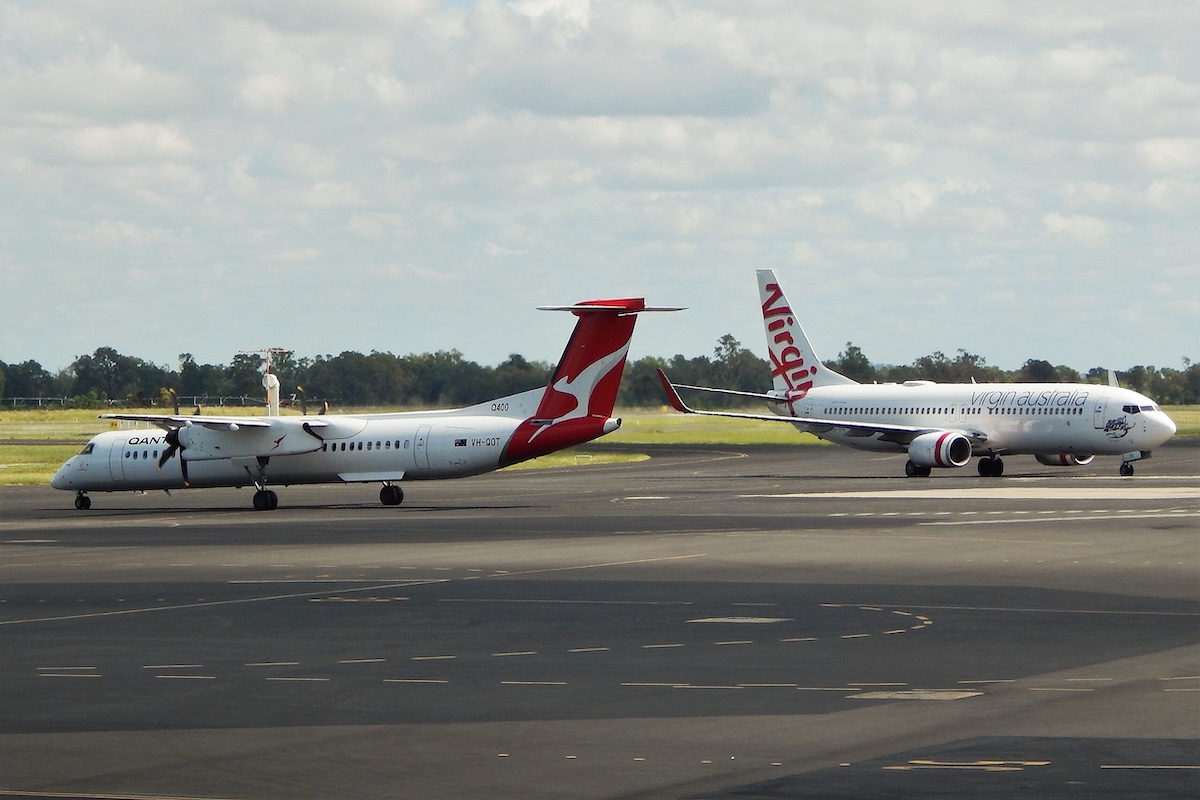

Thought the domestic aviation market was a two-horse race in 2024? As the ACCC reports, in 2025 it’s way worse than you think.
Back in 2023, Treasurer Dr Jim Chalmers asked the ACCC to keep a watchful eye on the skies. The government asked it to make sure as tourism started taking off again that the airlines weren’t price gouging. Enter the Domestic Airline Competition Report, which is a quarterly update of the watchdog’s findings.
According to the ACCC’s latest report released today, there’s not a whole lot of competition going on in the skies above our great nation. Qantas Group (made up of Qantas, Jetstar and QantasLink) and the Bain Capital-owned Virgin Australia, now account for a staggering 94.4% of all domestic passenger carriage. The Qantas Group alone holds over 60% of the market.
Virgin, boosted by the collapse of Bonza and the retreat of Rex from capital city routes, has lifted its share to 34.4% as of March 2025.
Those figures reflect more than just strong demand for travel. It’s the result of a year that saw the cascading failures of smaller players in the domestic carriage market.
That dominance isn’t just reflected in passenger numbers—it shows up on the balance sheet. Qantas posted $1.5 billion in EBIT in the first half of FY2024–25, with $916 million coming from domestic flying. Virgin, while private under Bain Capital, confirmed record profits during the same period.
Jetstar, which is now Australia’s only low-cost carrier, saw its earnings jump 53.7% year-on-year to $269 million. With no other budget competitor in the market, its margins have expanded alongside its market share.
The ACCC warns that this level of consolidation isn’t just a matter of good corporate performance. It has pretty serious implications for prices, service, and consumer choice.
“Jetstar has been able to capitalise on the continued absence of competitive pressure,” said ACCC Commissioner Anna Brakey.
And that absence may not change anytime soon.
Bonza’s crash out of the Australian market in April 2024 marked the second failed attempt at a third domestic player in a decade. Meanwhile, Rex has largely returned to its regional roots, operating with government backing as it navigates voluntary administration.
Despite seasonal swings in demand and weather disruptions in March, airfares are still up compared to historical norms. The ACCC noted that while fares dropped in early 2025, they had risen again by 9.6% in March—a pattern that may become familiar in a low-competition environment.
The market may be moving, but it’s not opening up. And for investors watching Qantas and Virgin’s grip on the skies, the story now is about how long they can hold altitude before competition returns, or regulators intervene.